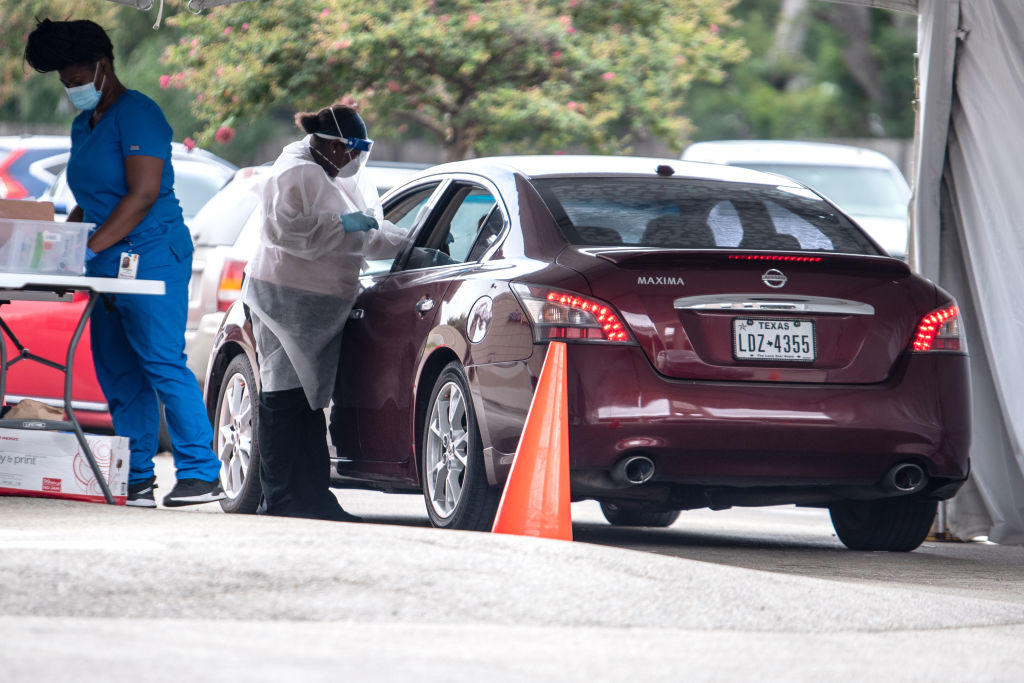
Eighty-five babies under the age of 1 have tested positive for the coronavirus in Nueces County, Texas, according to a local public health official.
“These babies have not even had their first birthday yet. Please help us to stop the spread of this disease,” Annette Rodriguez, director of public health for Corpus Christi, which is located in Nueces County, said at a Friday coronavirus press briefing. Rodriguez did not elaborate on the conditions of the babies at the briefing.
Texas has emerged as a major coronavirus hotspot in the U.S. and some hospitals in the state are almost at capacity as the virus continues to spread. Nueces County has so far reported more than 8,400 coronavirus cases and 90 deaths as of Saturday at 4:15 p.m., according to the Corpus Chrisi’s official data. The Texas Health Department notes on its dashboard, which was last updated on Saturday at 3:50 p.m., that Nueces County is reporting just under 8,200 coronavirus cases.
Cases of newborns testing positive for the virus have been relatively uncommon but are not unheard of since the pandemic first took hold. Current research on the coronavirus suggests that adults — particularly those who are older or with underlying health conditions — are significantly more at risk from suffering the worst effects of the coronavirus as compared to younger people. A large European study published June 25 in The Lancet Child & Adolescent Health found that fewer than 1% of children who develop COVID-19, ranging from three-days-old to 18, will die from it.
The region is dealing with a worrying trend, according to city officials. Peter Zanoni, the Corpus Christi city manager said during Friday’s press briefing that Nueces County has the “fastest case growth in new cases right now, on the seven-day average, than any other metropolitan county in the state.”
“That’s a problem,” he said.
The seven-day average for the county was 357 cases a day, Zanoni noted on Friday.
Zanoni also pointed out that “back in April we were reporting zero new cases — maybe three, maybe five” but that things took a turn in July. “[T]his is where we have had that huge spike in cases, and this is why it’s turned into a major problem for Nueces County,” he said.
The Texas Tribune reports that Nueces County’s surge may at least partially be due to tourist activity. Local officials say visitors and tourists to the popular beachfront location were the main drivers of the initial outbreak, the Tribune reports.
More Must-Reads from TIME
- Donald Trump Is TIME's 2024 Person of the Year
- Why We Chose Trump as Person of the Year
- Is Intermittent Fasting Good or Bad for You?
- The 100 Must-Read Books of 2024
- The 20 Best Christmas TV Episodes
- Column: If Optimism Feels Ridiculous Now, Try Hope
- The Future of Climate Action Is Trade Policy
- Merle Bombardieri Is Helping People Make the Baby Decision
Write to Sanya Mansoor at sanya.mansoor@time.com